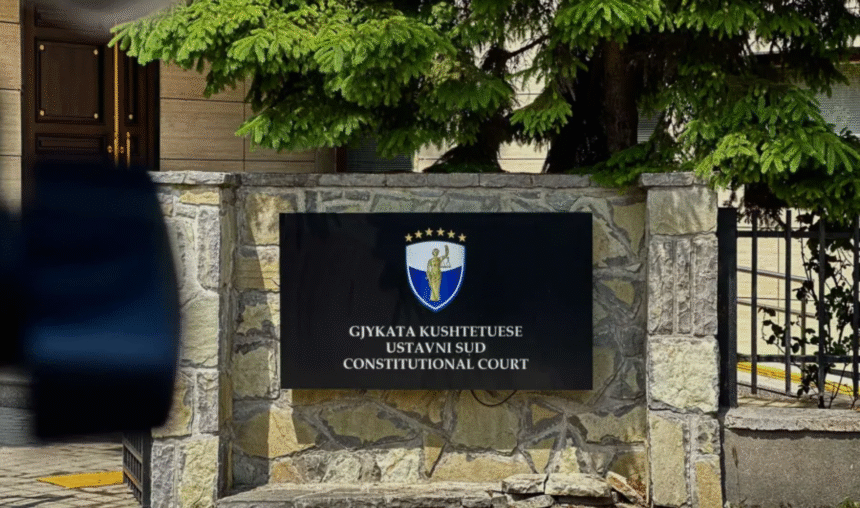The Constitutional Court has confirmed that it is reviewing the complaint filed by the Serb List concerning the election of the Deputy Speaker of the Assembly representing the Serb minority.
A decision will be made after all claims have been examined. The Serb List alleges that the election of Nenad Rašić violated the Constitution, the Rules of Procedure of the Assembly, and a previous Constitutional Court ruling on the same matter. Their complaint also includes a request for a temporary measure to halt what they call “unconstitutional actions” that could cause irreversible damage.
The Court has not clarified whether it is considering imposing such a measure. A previous complaint by the Serb List—also regarding the issue of deputy speakers—was reviewed by the Constitutional Court in early September, when Speaker Dimal Basha had declared the Assembly constituted despite the absence of a fifth deputy speaker from the Serb community.
On September 5, the Constitutional Court suspended the work of the Assembly for 25 days, issuing a temporary measure based on the Serb List’s complaint.
In its full ruling, the Court stated that the Assembly had not yet been constituted, and instructed deputies to elect a deputy speaker from the Serb community to pave the way for the formation of the Government. The ruling emphasized that the nomination for the minority deputy speaker must come from the majority or largest number of Serb deputies, but that no group holds a veto power.
After the Serb List exhausted its nominations, Speaker Dimal Basha requested that they also propose a candidate not belonging to their parliamentary group. When the Serb List—closely aligned with official Belgrade—refused, the nomination of Nenad Rašić was put to a vote and received the required number of votes for election as Deputy Speaker.
The ninth legislature was officially declared constituted on October 10, following the election of Nenad Rašić as the Serb community’s Deputy Speaker. His election came after nine failed Serb List nominations and three consecutive rounds of voting.
The next day, President Vjosa Osmani formally mandated Albin Kurti, leader of Vetëvendosje, to form the new Government. Kurti now has eight days remaining to present his cabinet composition and program to the Assembly.
To approve the Government, 61 votes are required in the 120-seat Parliament. In the February 9 elections, Vetëvendosje won 48 seats.
If Kurti fails to secure the necessary 61 votes by October 26, President Osmani is legally obliged to hold new consultations with political parties within 10 days and, at her discretion, nominate another candidate—provided they can demonstrate majority support to form a government.
The new nominee would then have 15 days to present the proposed cabinet to the Assembly.
If the Government is not elected even in the second attempt, the President must call new elections, which must be held no later than 40 days from the date of their announcement.







